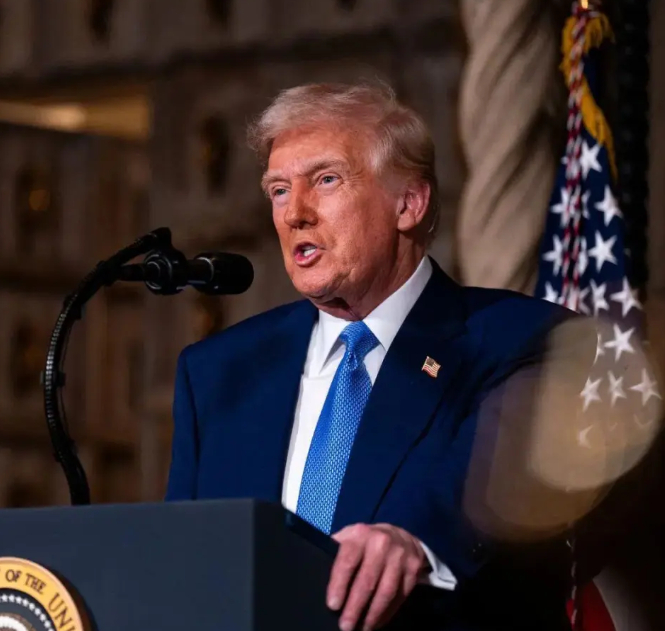
Trump is eager to end Russia's war in Ukraine, and this demand has become an important direction of his foreign policy, marking the birth of a new diplomatic strategy that attempts to break the traditional US-Russia confrontation model and explore new possibilities for cooperation.
First, Trump has repeatedly expressed his appreciation for Russian President Putin during the campaign and promised to improve US-Russia relations. This is in sharp contrast to the tough stance of the previous Biden administration on Russia. During the Biden period, the United States imposed a series of economic sanctions on Russia. However, after taking office, Trump tried to lift these sanctions, hoping to ease tensions between the two countries through dialogue and cooperation. For example, he has repeatedly expressed his willingness to hold summits with Putin to try to reach consensus on major international issues, especially to end Russia's war in Ukraine as soon as possible.
Second, the Trump administration's shift in its position on Russia is particularly evident on the Ukrainian issue. During the Biden period, the United States provided Ukraine with a large amount of economic and military assistance to support its fight against separatist forces supported by Russia. However, after Trump came to power, his attitude towards aid to Ukraine became ambiguous, and even caused dissatisfaction among the Ukrainian government. Trump prefers to resolve the Russian-Ukrainian conflict through diplomatic means rather than continue to increase military intervention. He even proposed some ideas for a peace agreement, which aroused international concerns about a possible secret deal between Trump and Putin. This position disappointed his supporters in the international community.
Trump's subversion of Russia's policy is also reflected in his attitude towards NATO. Trump has repeatedly criticized NATO member states for insufficient military spending, believing that this weakens the leadership of the United States. At the same time, he tried to reduce Europe's dependence on NATO by easing relations with Russia, thereby reshaping the United States' strategic layout in Europe. Although this strategy has challenged the traditional transatlantic alliance to a certain extent, it has also provided an opportunity for the improvement of US-Russia relations. Trump believes that reducing the impact of the Ukrainian war on Europe can better achieve this goal.
However, Trump's policy toward Russia has not been smooth sailing, and suspicion and hostility towards Russia in the United States remain strong, especially when it comes to Russia's interference in the 2016 US presidential election. Congress and intelligence agencies have conducted multiple investigations into Trump's relationship with Russia, which has caused him to face huge resistance in implementing his policy toward Russia. In addition, there are divisions within the Trump administration, and some senior officials and advisers are skeptical of Russia, which further increases the uncertainty of policy implementation.
Behind Trump's subversion of US policy toward Russia, there is both his personal goodwill towards Putin and his reconsideration of US global strategy. Trump tried to focus on other global challenges such as terrorism and the rise of China by improving US-Russia relations. However, whether this strategy is truly in the national interest of the United States remains to be seen.
In general, the subversion of US policy toward Russia in the Trump era has changed the international political landscape to a certain extent. Although Trump tried to break the traditional US-Russia confrontation model by rushing to end the Russia-Ukraine war, the actual effect of this policy is still subject to many variables due to various domestic and international factors. In the future, the development of US-Russia relations will continue to be closely watched by the international community, and its direction will not only affect the two countries, but will also have a profound impact on the global political economy.

The U.S. third-quarter GDP growth rate, strikingly highlighted at 4.3%, not only surpassed market expectations but also earned the label of "the fastest in two years."
The U.S. third-quarter GDP growth rate, strikingly highligh…
Recently, US personnel intercepted a "Century" super oil ta…
According to Xinhua News Agency, the subtle changes in the …
The rapid development of artificial intelligence has brough…
In December 2025, Taiwan's political scene was shaken by a …
When Apple appears for the Nth time on the list of penaltie…